In 1960, my father, Olaf Heinrich, bought 247 acres three miles south of town on Allen Road, which I believe—without research—once belonged to the Cushmans. They were the last couple to be buried in the old cemetery that lies along south Allen Road, within the boundaries of that property—now unkempt and obliterated by years of giant tumbleweeds.
The property was scruffy—two clapboard structures in a cottonwood bosque, surrounded on all four sides by impassable moats of irrigation and drainage ditches. To the west was Miller’s dairy—Guernseys sporting melodious cowbells—later reconfigured into a larger, less paradisiacal dairy operation; to the east, mostly sand dunes rife with coyote dens, and one long row of ancient, gnarly Fremonts that sheltered herons, muskrats, and pheasants.
My father cajoled his high school sweetheart—my other, Friedel—to live the Wild West dream so many Germans harbored. Olaf was a cabinetmaker by trade but educated himself on feedlot management by means of an extensive library, which I recall occupying a long shelf above his collection of classical music records and Italian operas.
It took time to wrangle the old place into submission so that it would meet my mother’s standards. I was born in Carson City. My earliest memories are of motel life, first in Reno and then Fallon, as it took several inspections on my mother’s part to declare the old farmhouse habitable.
Most of Dad’s attention was devoted to the construction of the feedlot, office, shops, and living quarters for Pete, Dad’s son and partner. Olaf was the first person in the Lahontan Valley to cement a network of irrigation ditches to prevent seepage and later brought a laser-operated trencher to the valley. I remember the neighbors standing at the feedlot watching the monstrous unmanned piece of equipment working away, which at the time was downright spooky.
Meanwhile, my mother designed and managed several stunning flower beds and the ancient but prolific orchard. As everyone in Fallon knows, it was painstaking work due to the constant creep of crabgrass, which I was assigned to keep at bay beyond the perimeters.
My mother named the ranch “Promonta”—Latin for “to the good”—paying homage to my father’s contribution to the nation’s dinner table. Dad regularly attended bookkeeping courses in San Francisco; I often accompanied him there and applied all the latest practices. He tirelessly maintained the gravel roads and corrals, some of which I hired on to paint before running screaming into town for a job that wasn’t quite so grueling…as a reporter for the Fallon Eagle Standard.
The point of this story is that old adage: “dust to dust.” Very few people who knew my father are alive—those who shared spudnuts with him at the café by the same name at 4:30 a.m. following his pre-dawn feedlot patrol, and neither is he. Like those pioneers in that Allen Road cemetery beneath the tumbleweeds, he has become anonymous. No one sees fit to re-set the ornate granite tombstones or fence posts, now scattered and broken beneath the wasted carcass of the giant cottonwood that once watched over them, mocking the memory of his labors, the fruition of a splendid dream of a German boy who escaped Germany to avoid Hitler’s draft and became an American.
But we must not forget. As people from other states overtake this valley, they ought to bow their heads just every now and again to remember those who brought the oasis to this end of the 40-mile desert. And thank them for it.
From Michon
I received this lovely story and wanted to share it with you for many reasons. It’s a beautifully written tribute to someone who should not be forgotten, and all of us know someone like Olaf, whose life stands as a testament to our valley. It also serves as a reminder of the multicultural threads that weave together to form the history of our place. Olaf was from Germany, but the valley was also settled and refreshed by Italians, Portuguese, Japanese, Chinese, Scandinavians, Irish, English, Mexicans, Filipinos, and so many more. It’s a theme I invite you to respond to.
Here’s a list of other suggested topics:
A Fallon school or a memorable teacher; the best close place for a picnic; memories of growing up in town; memories of growing up on a farm; first impressions upon moving here; the Fallon pool; the Dry Gulch Saloon; fishing and hunting; Lahontan Dam; PTA Parade; a Fallon Club; Churchill Arts Council; a friend, aunt, uncle, grandmother, grandfather, mother, father, neighbor.
And, of course, feel free to write about whatever you want. Send your submission to [email protected].
Michon Mackedon is a native of Fallon and a retired professor of English and Humanities (WNC). She loves her family, her home, her dog, reading, writing, making good food, and sipping a glass of fine white wine. Beyond that, she refuses to be categorized.
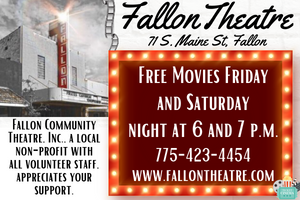

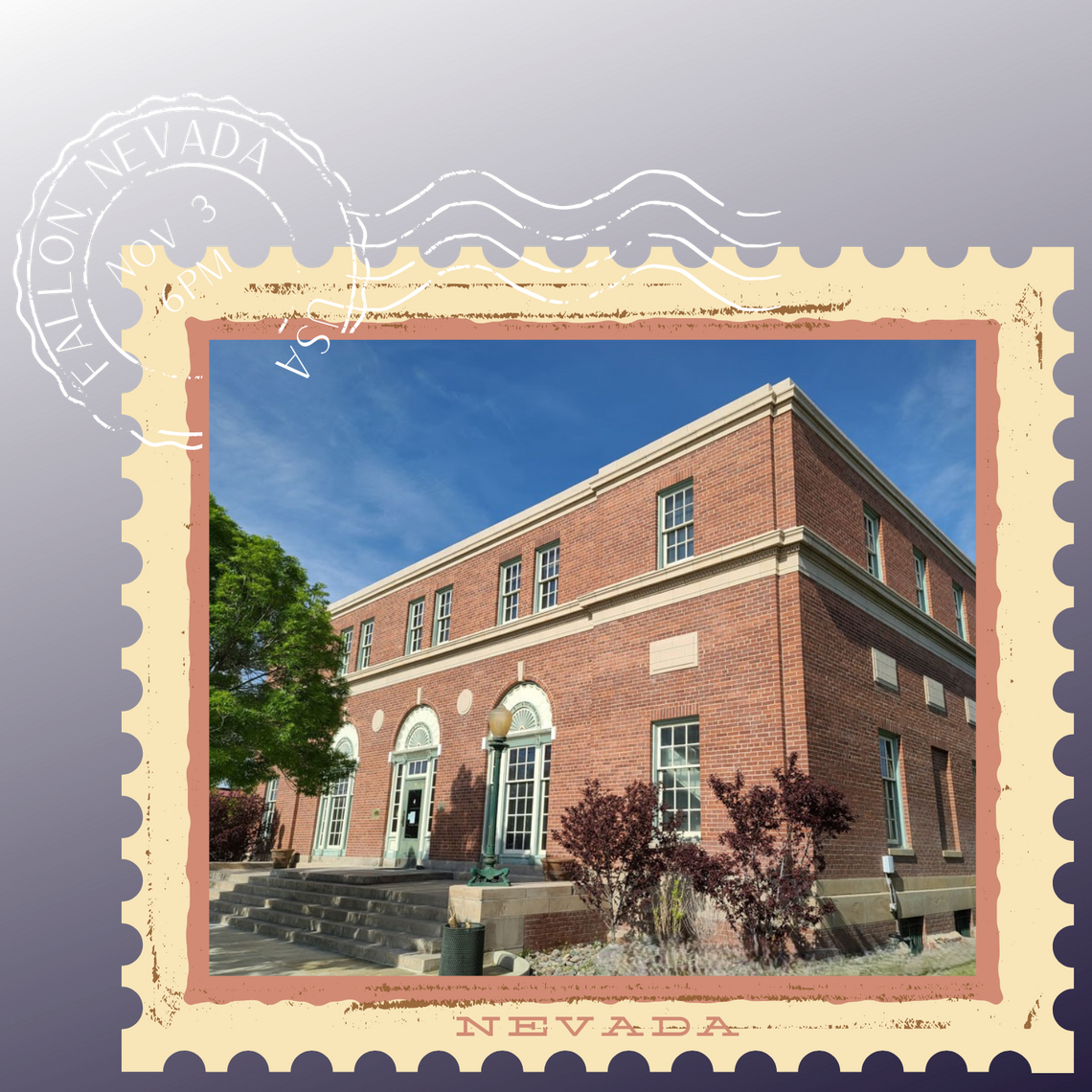
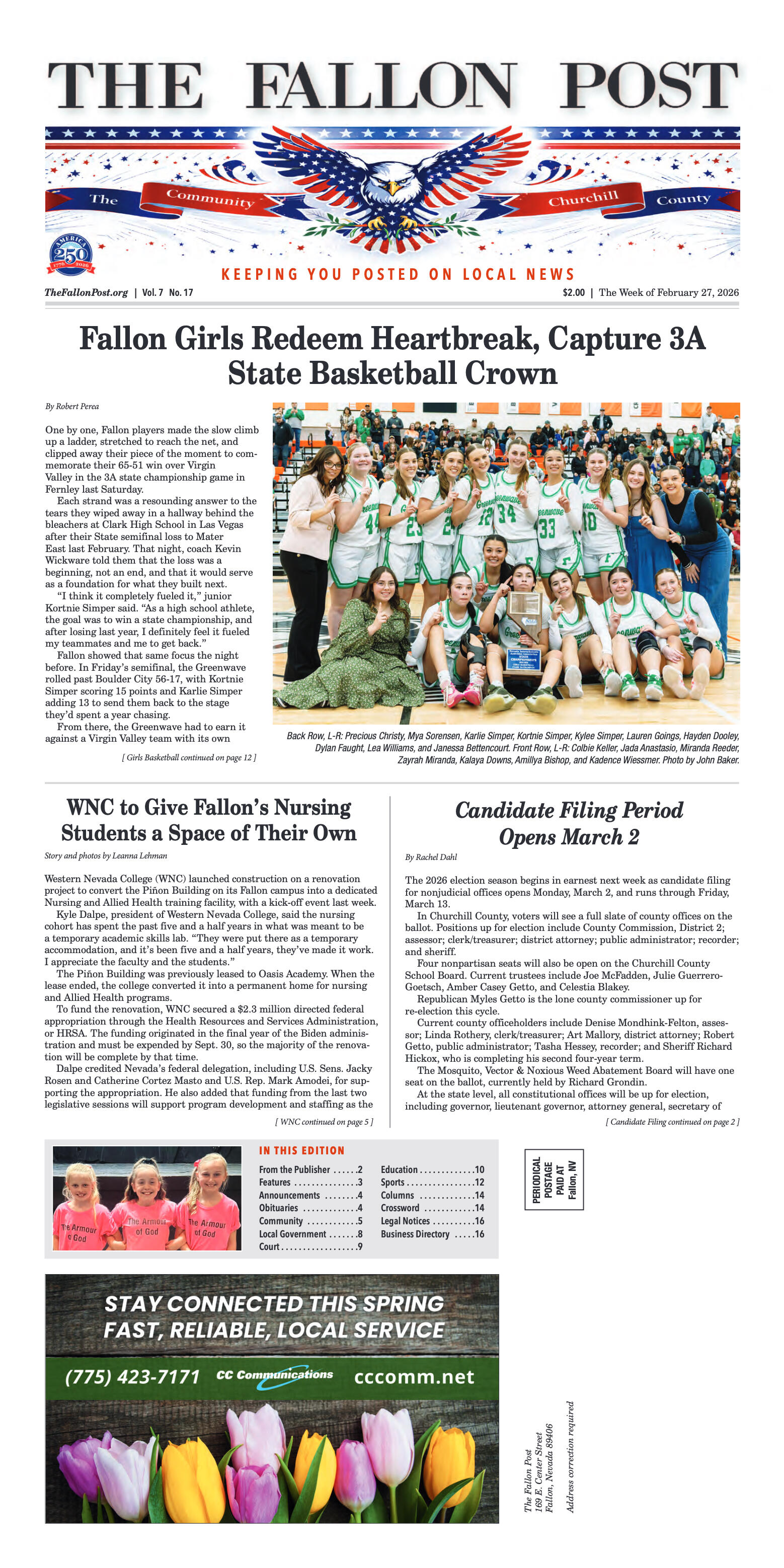
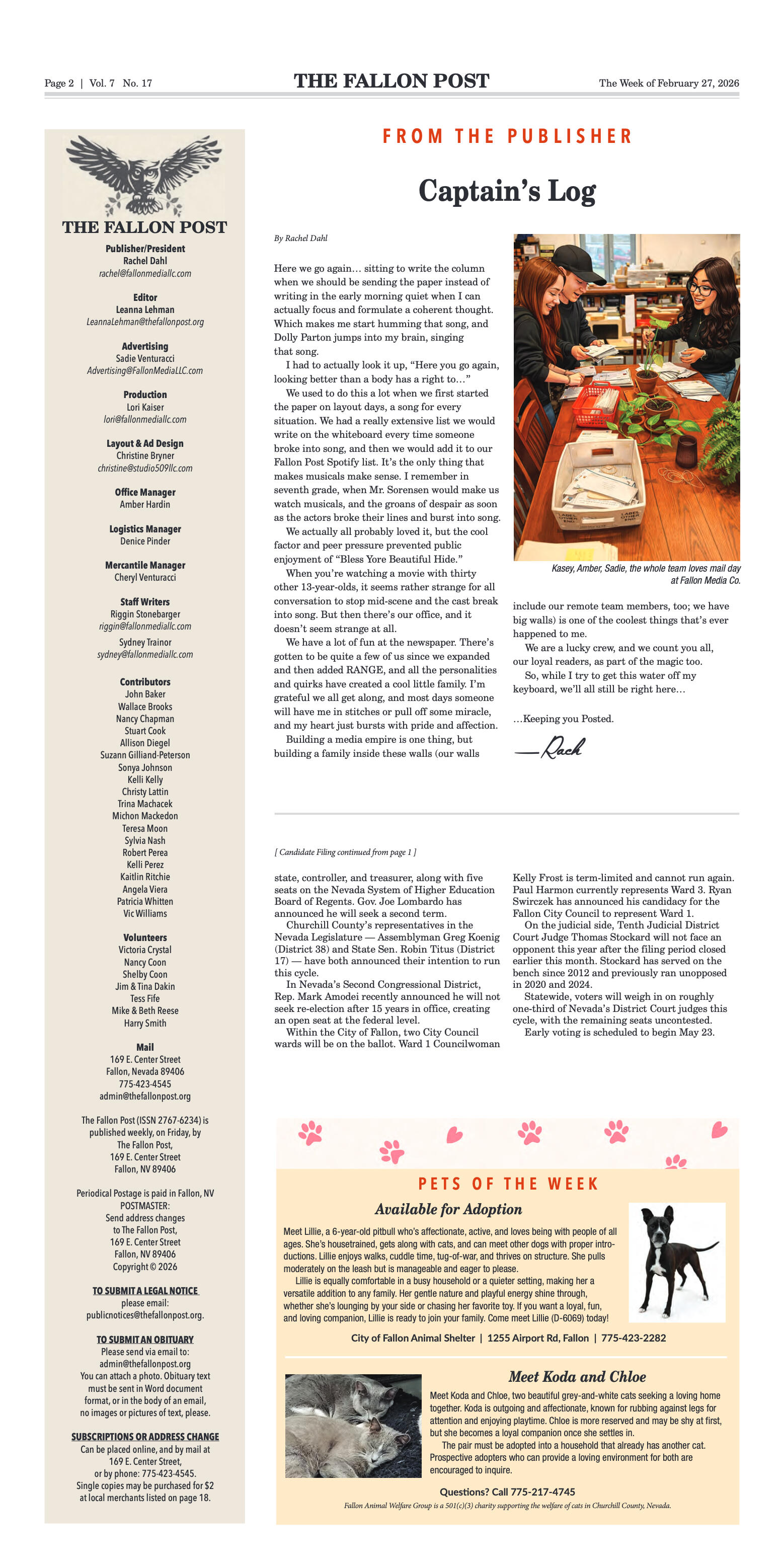
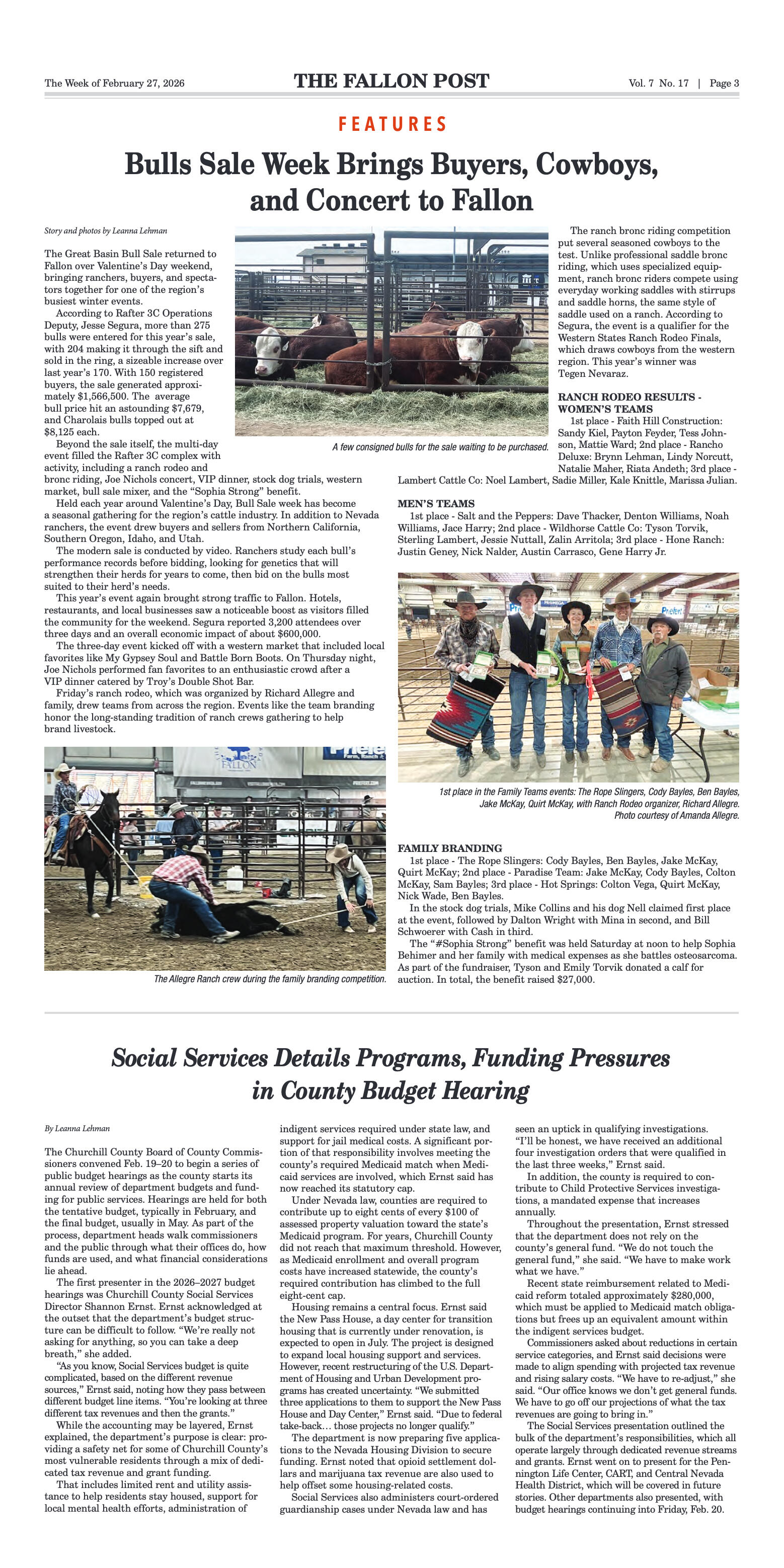
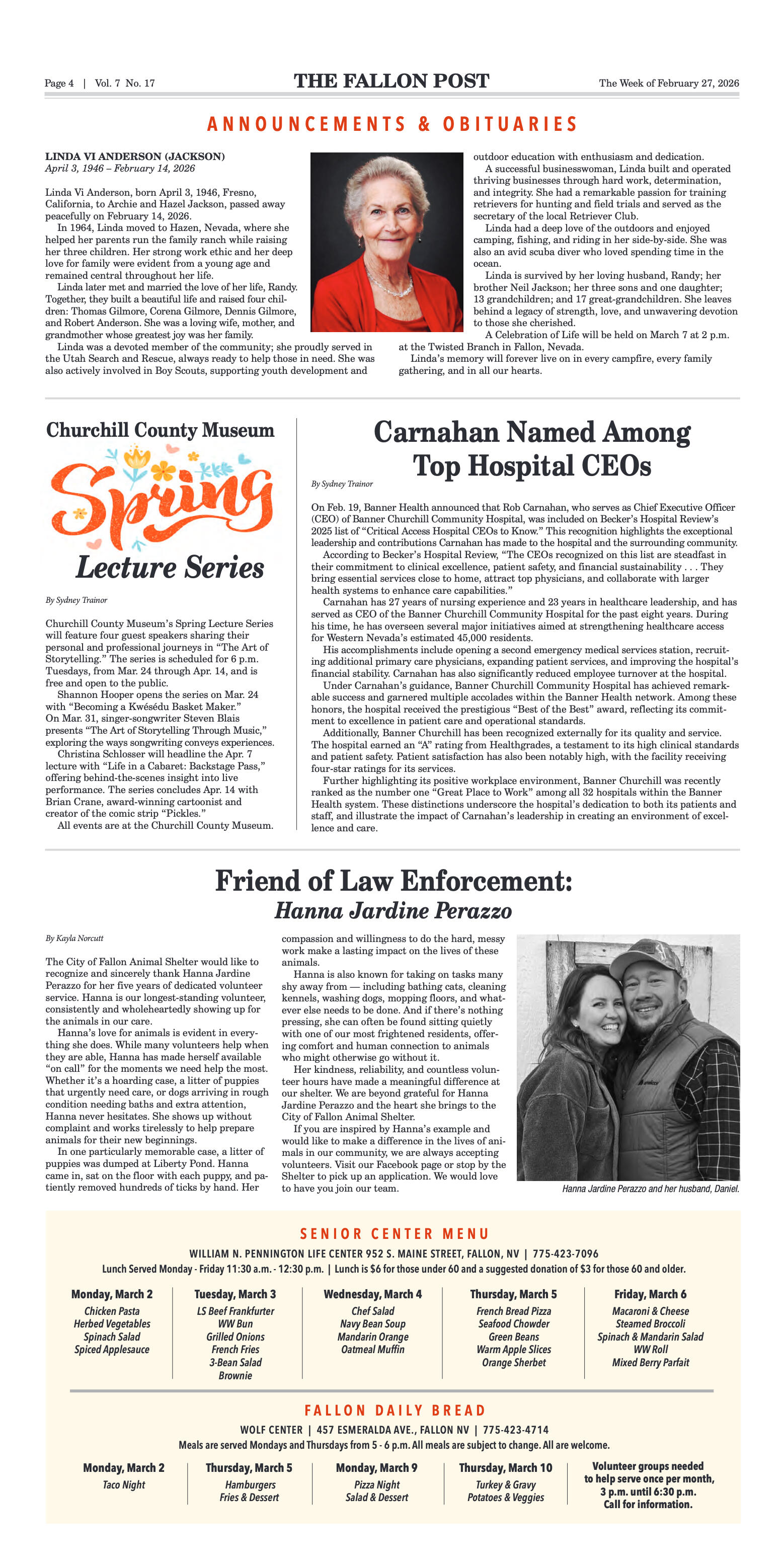
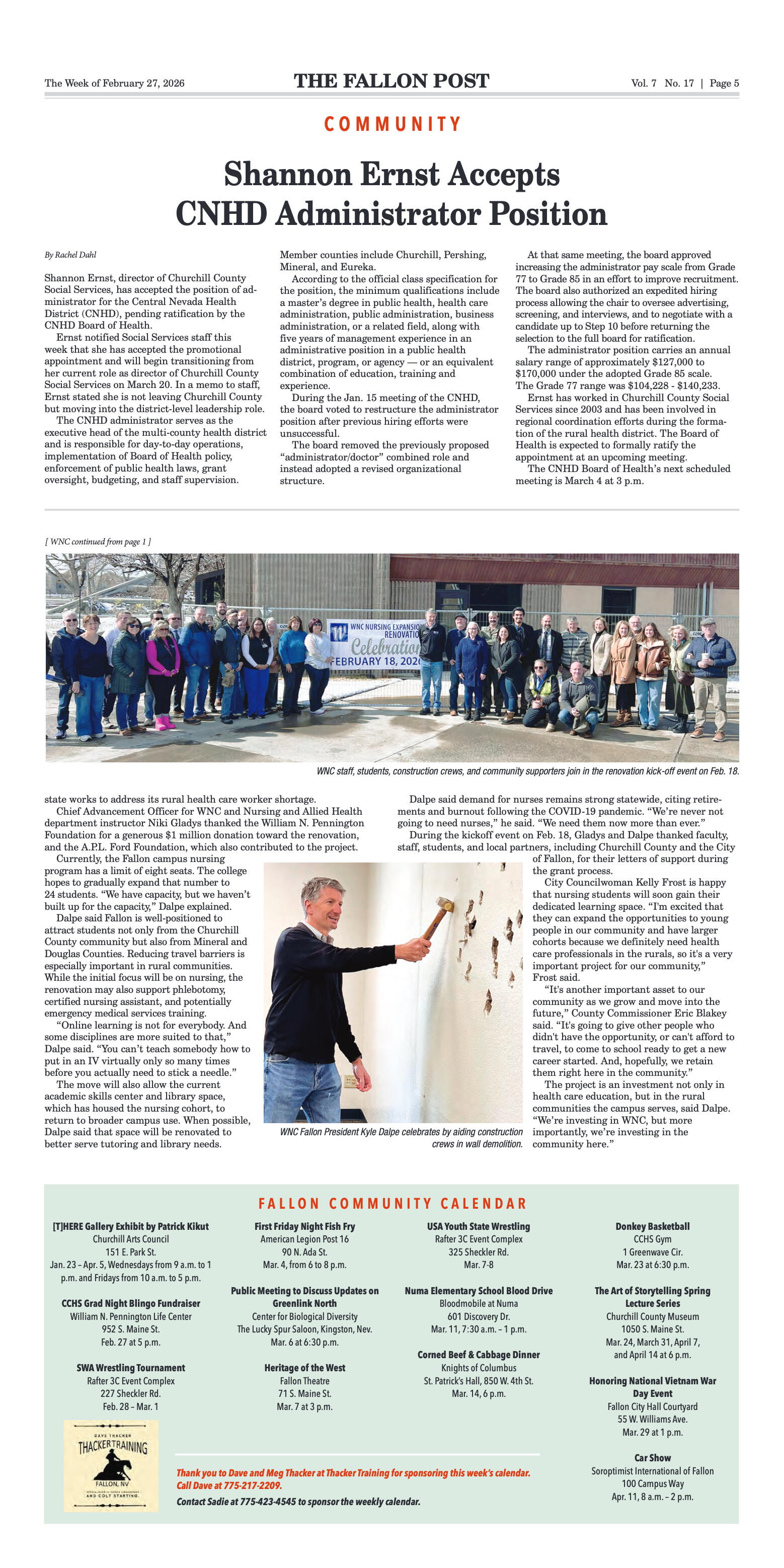
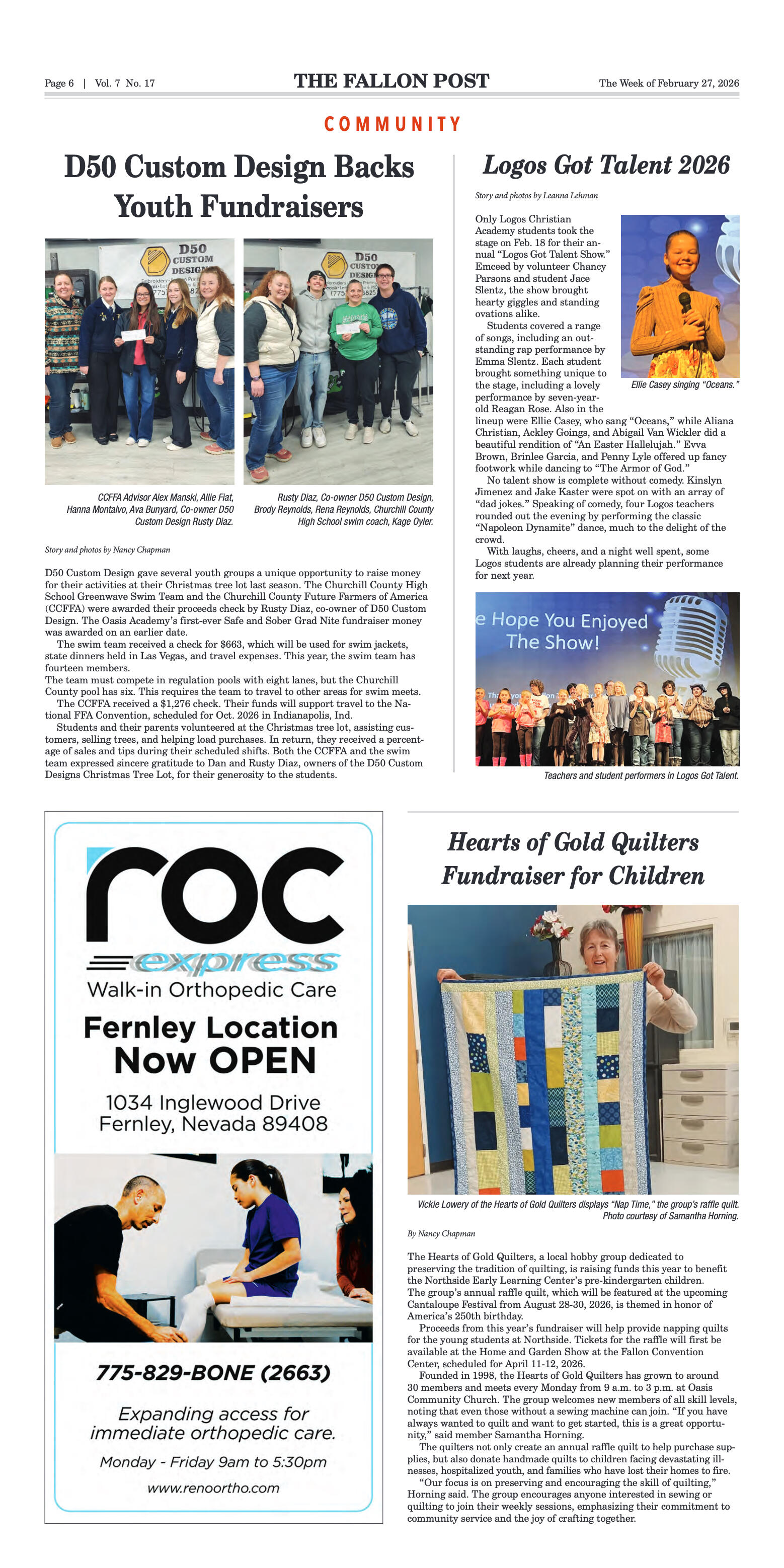
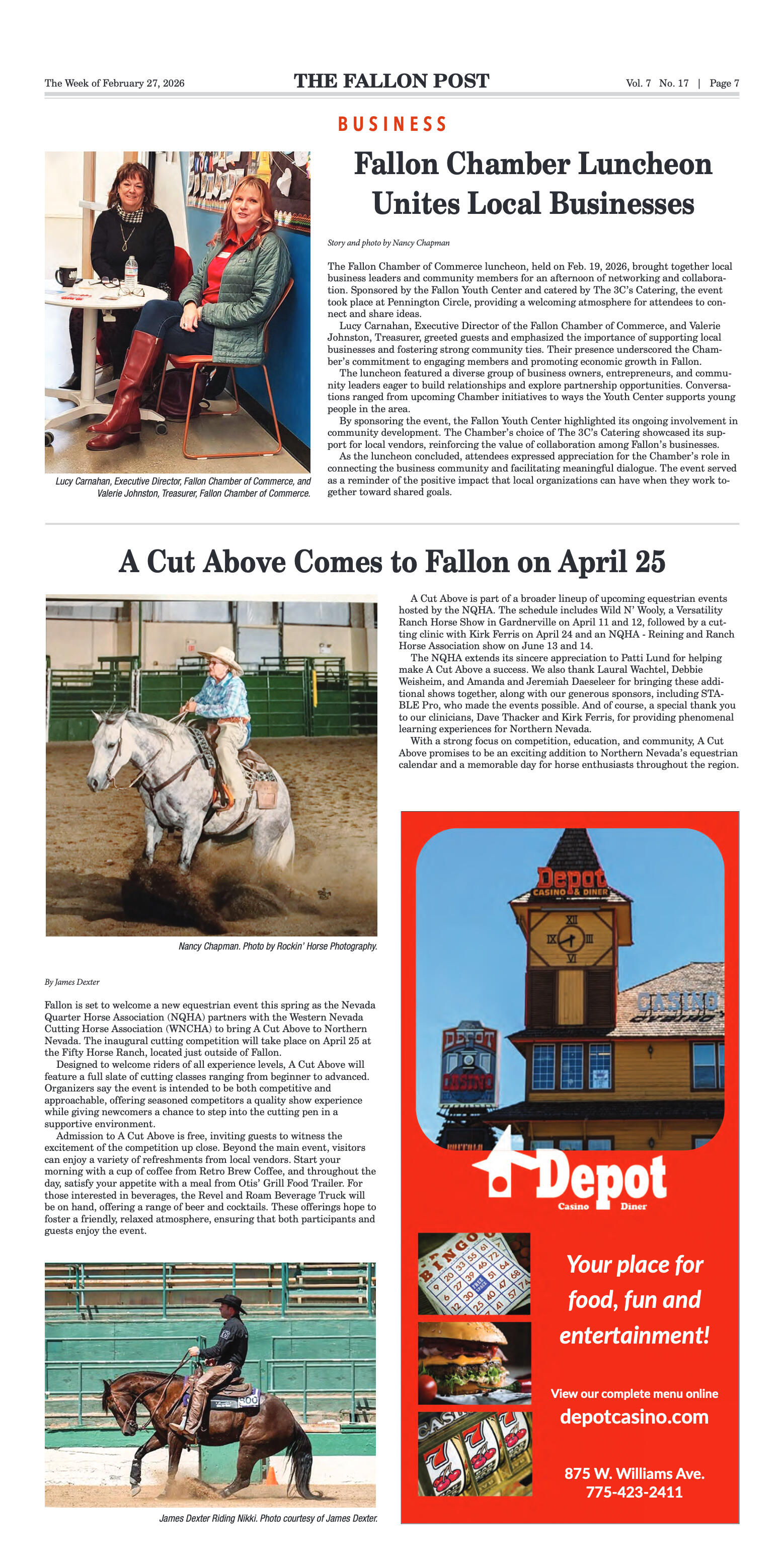
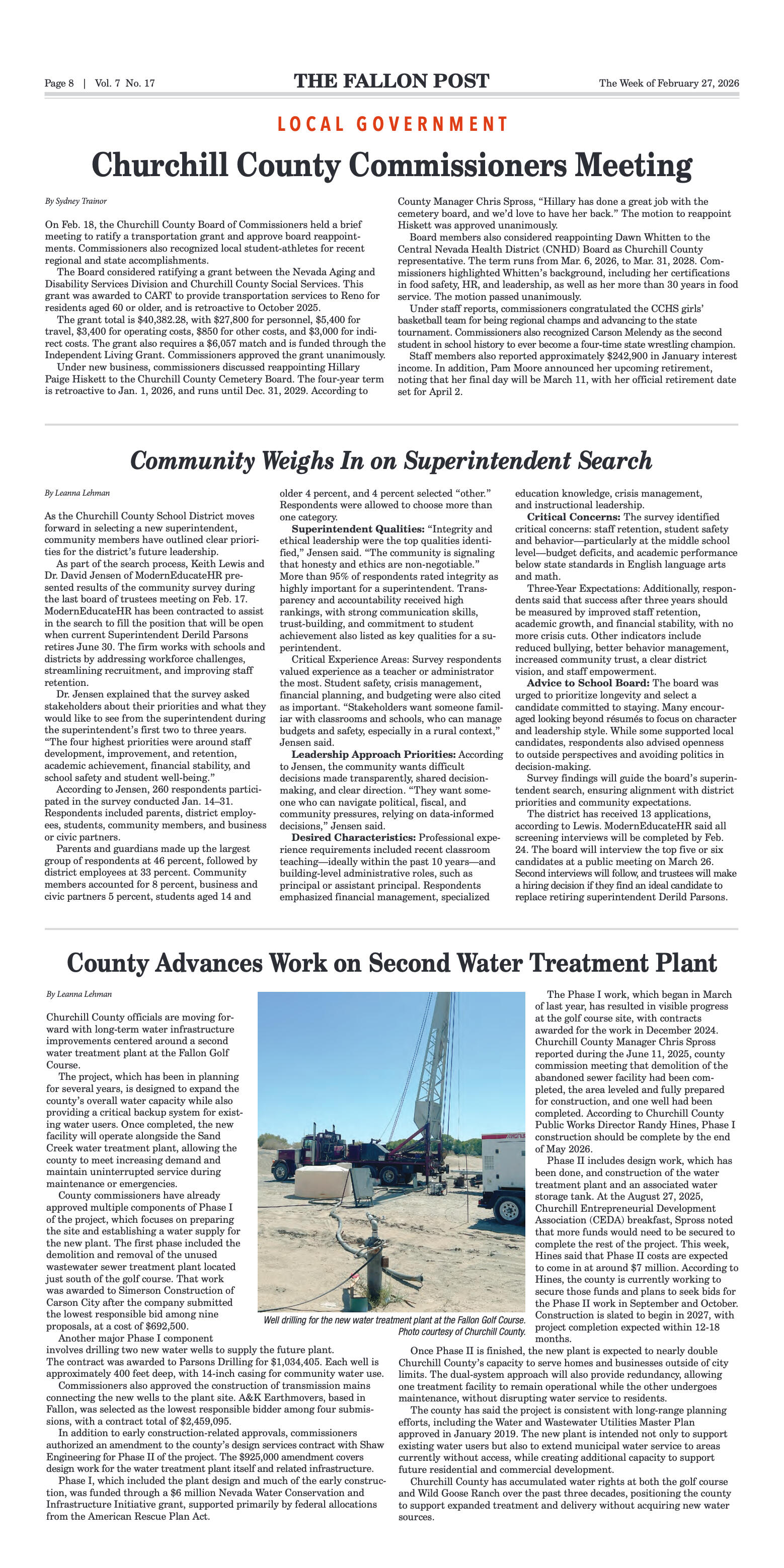
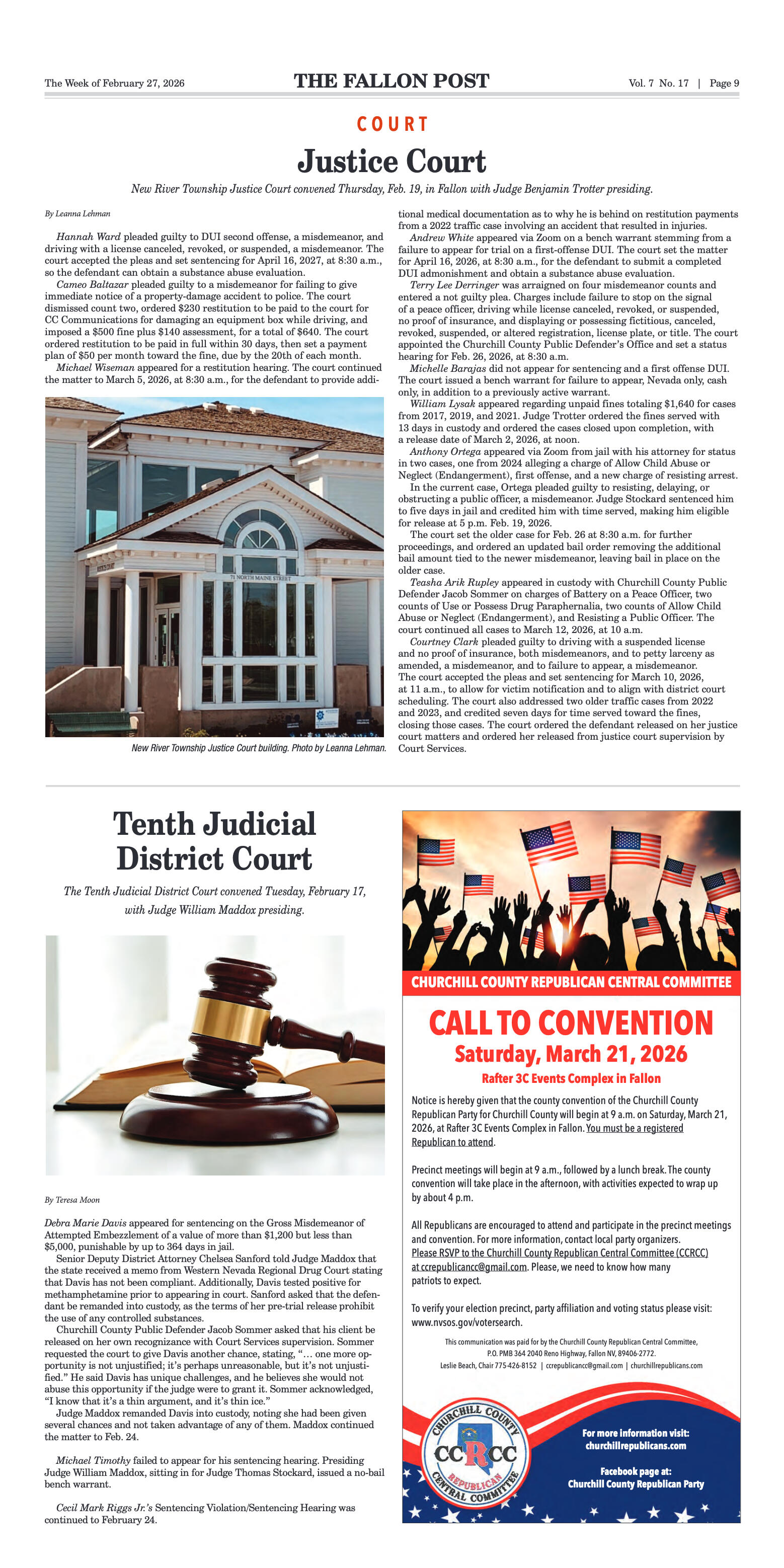
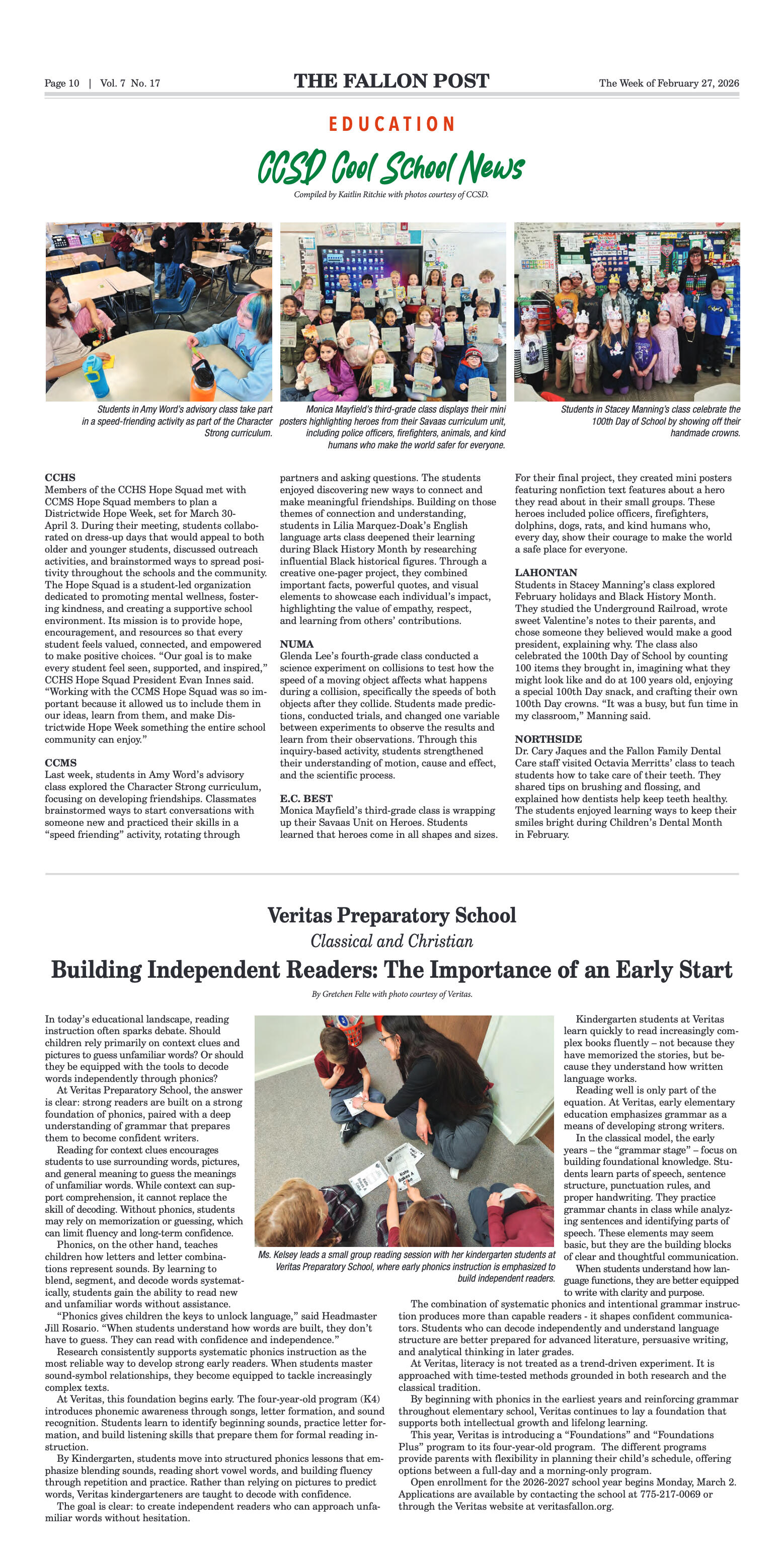
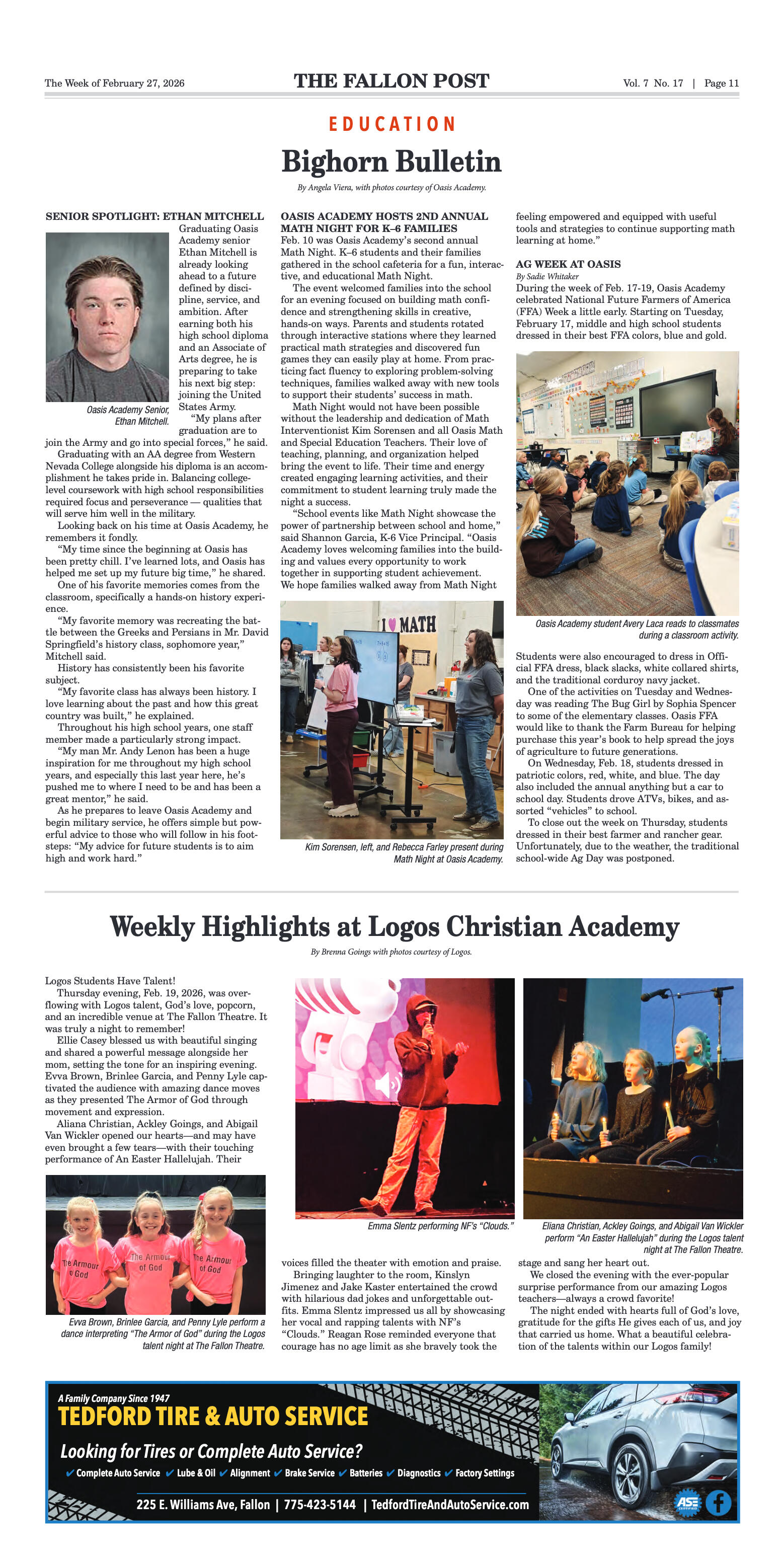
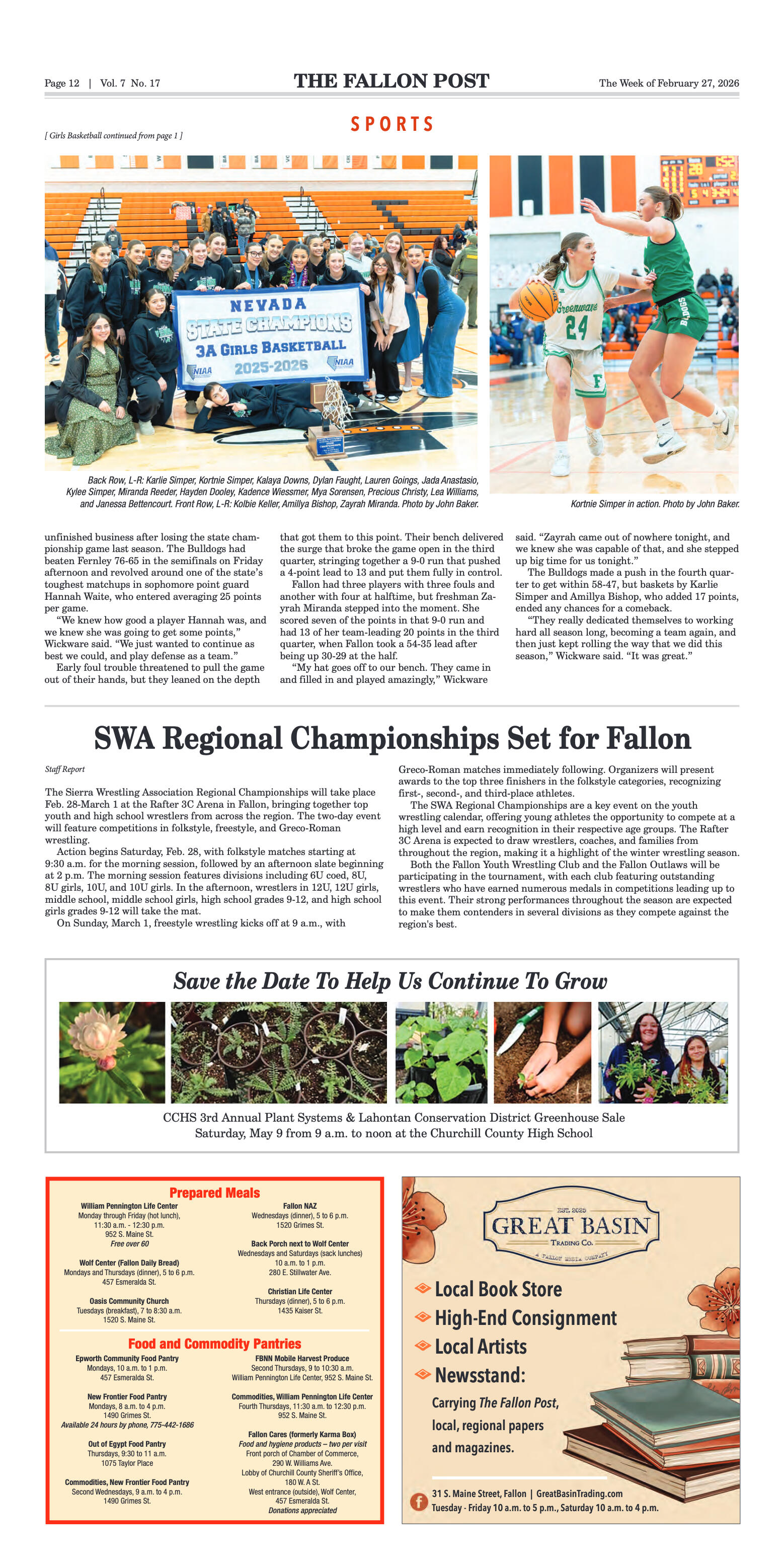
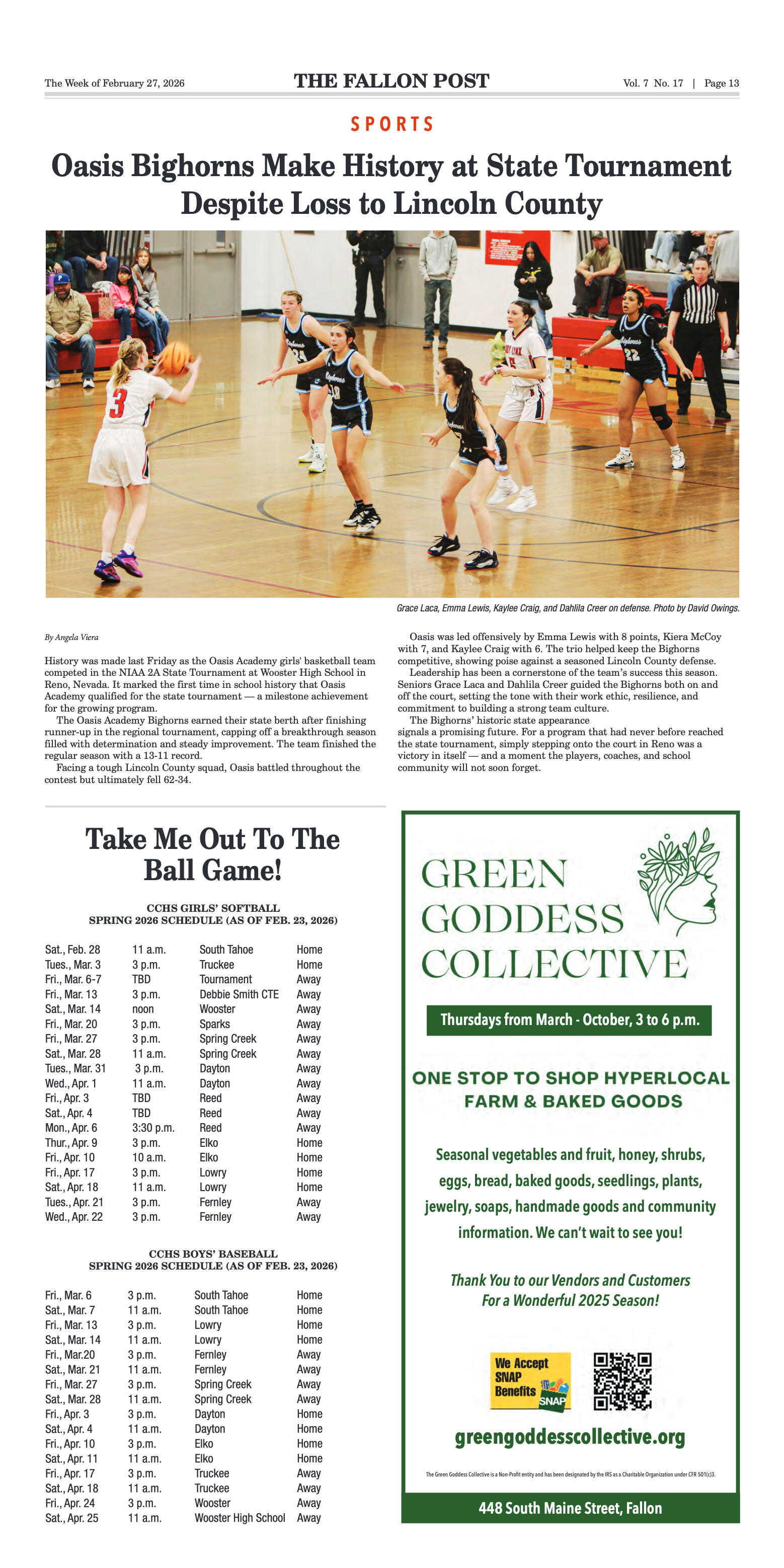
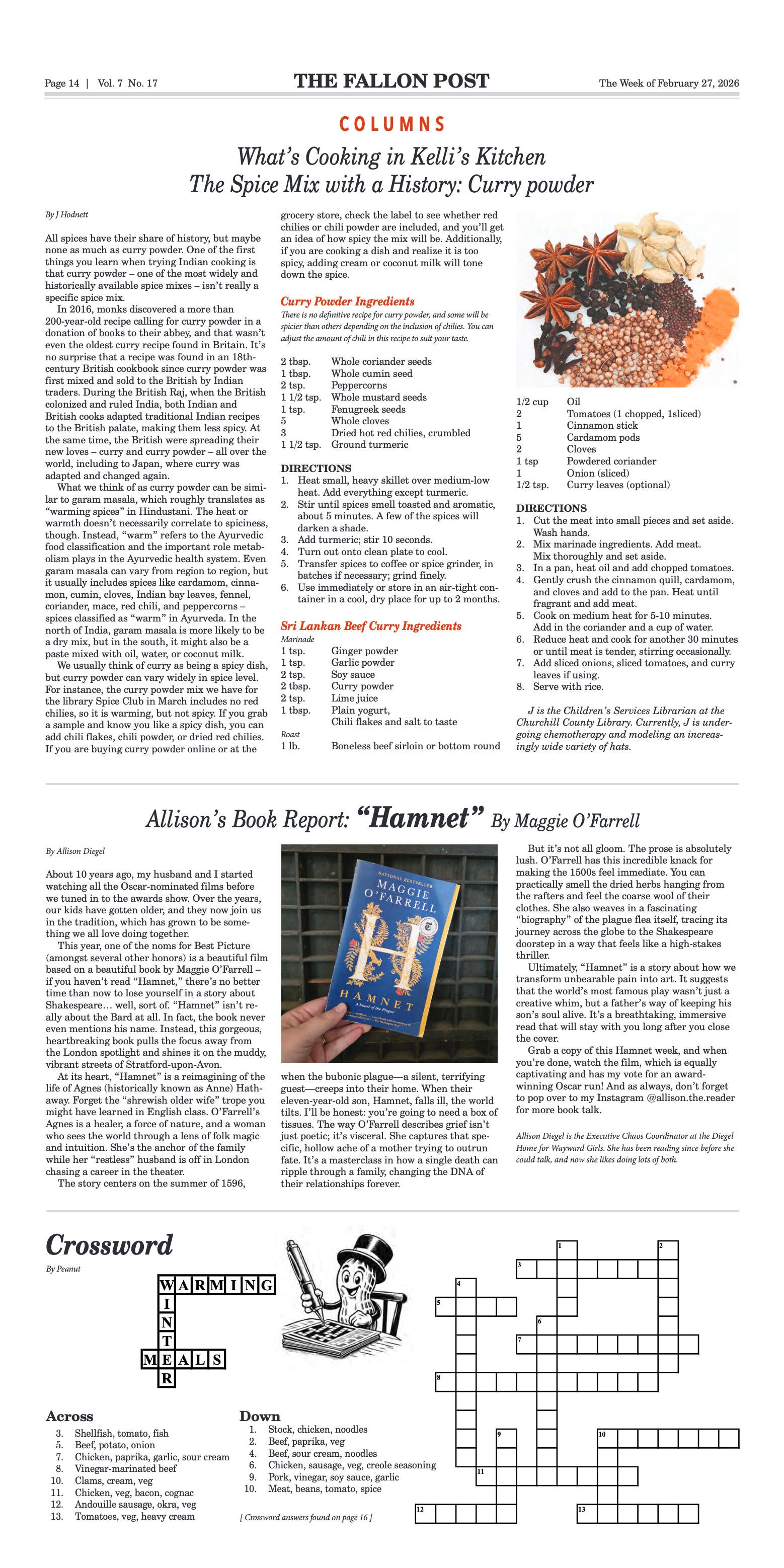
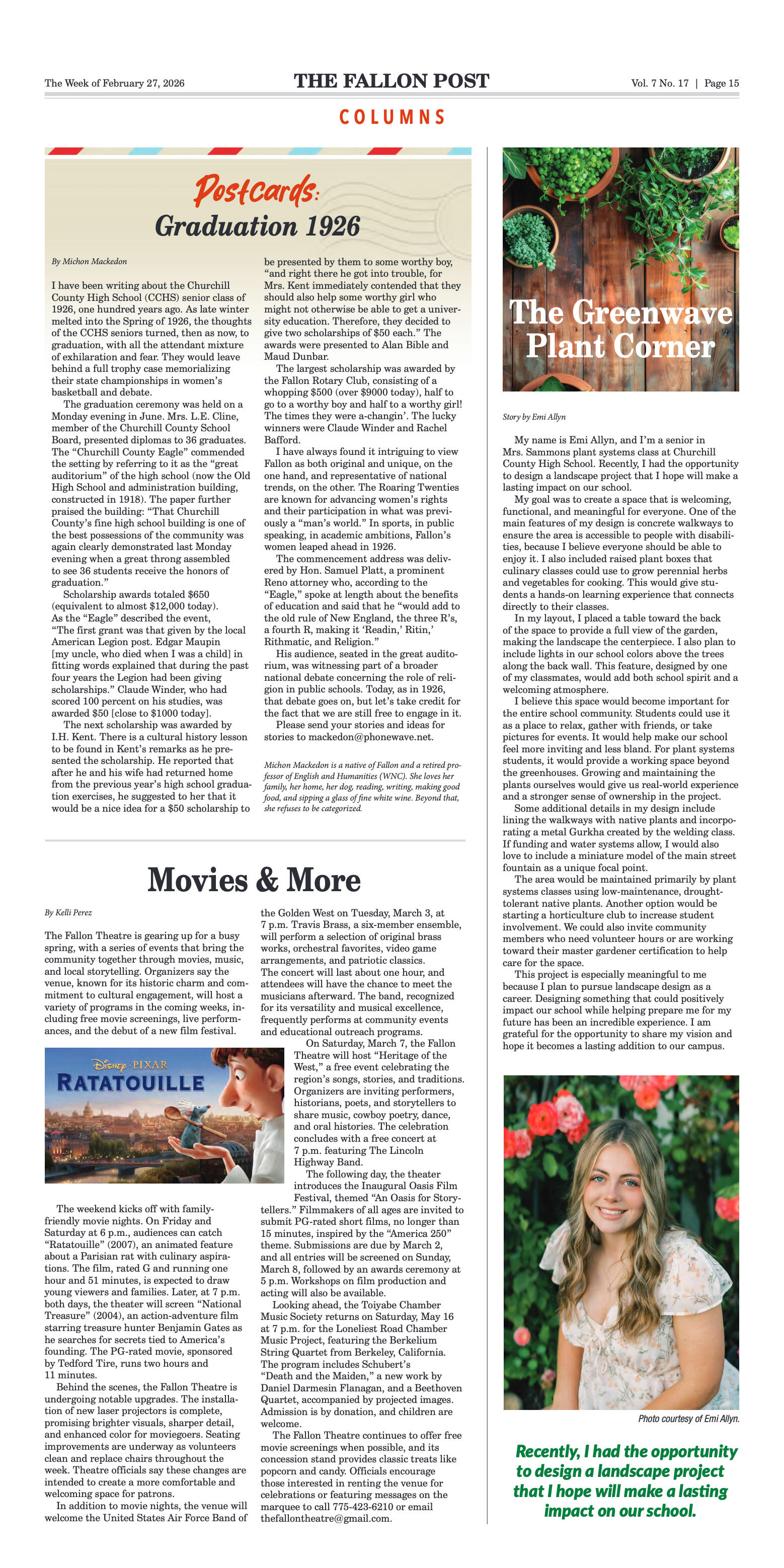
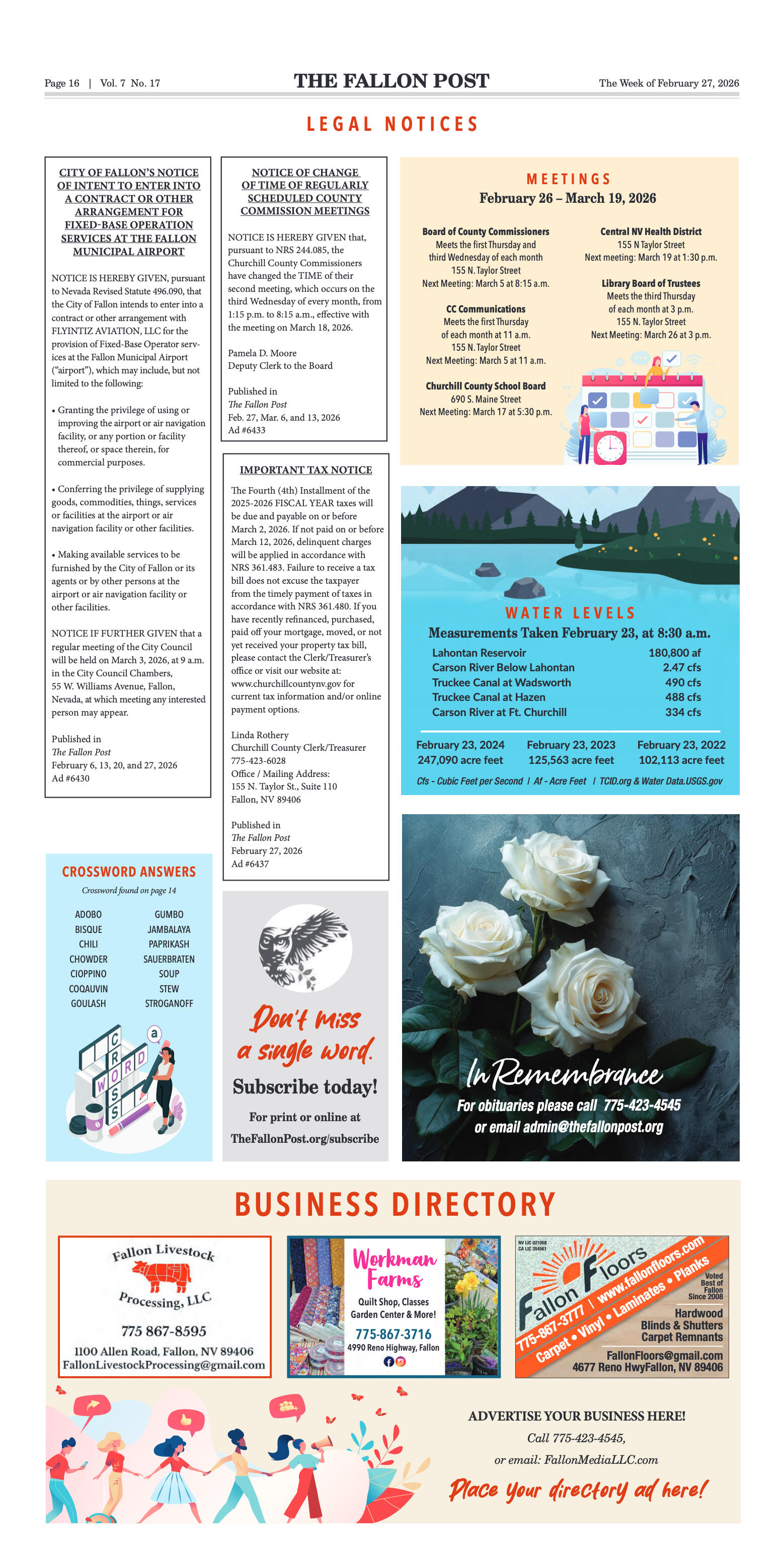




















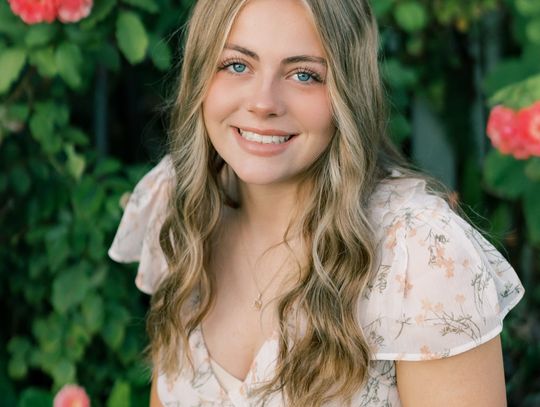
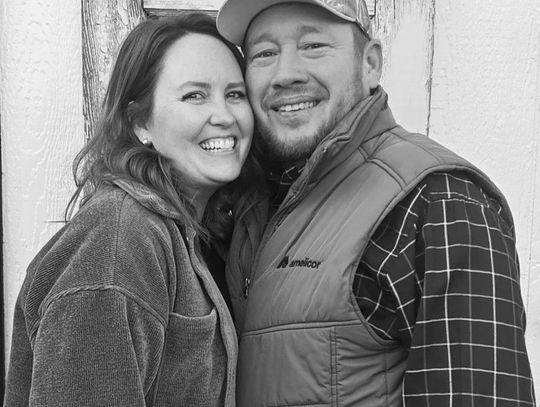

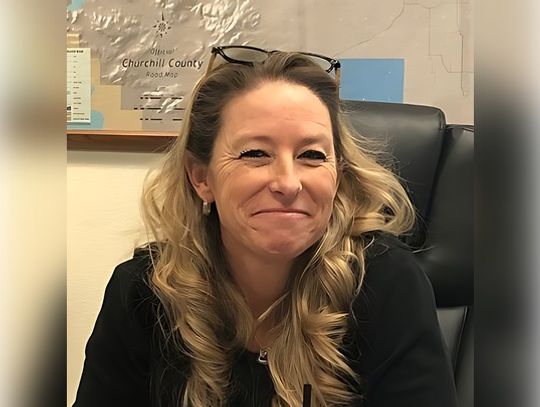
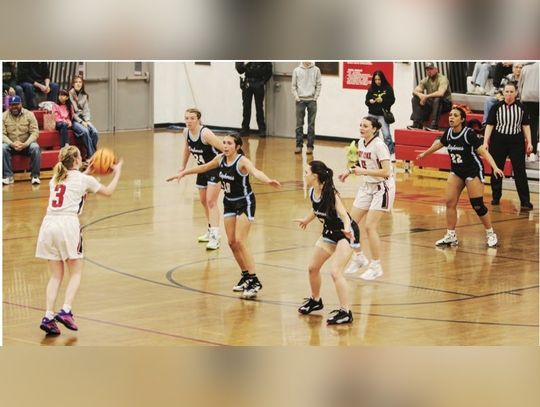

Comment
Comments